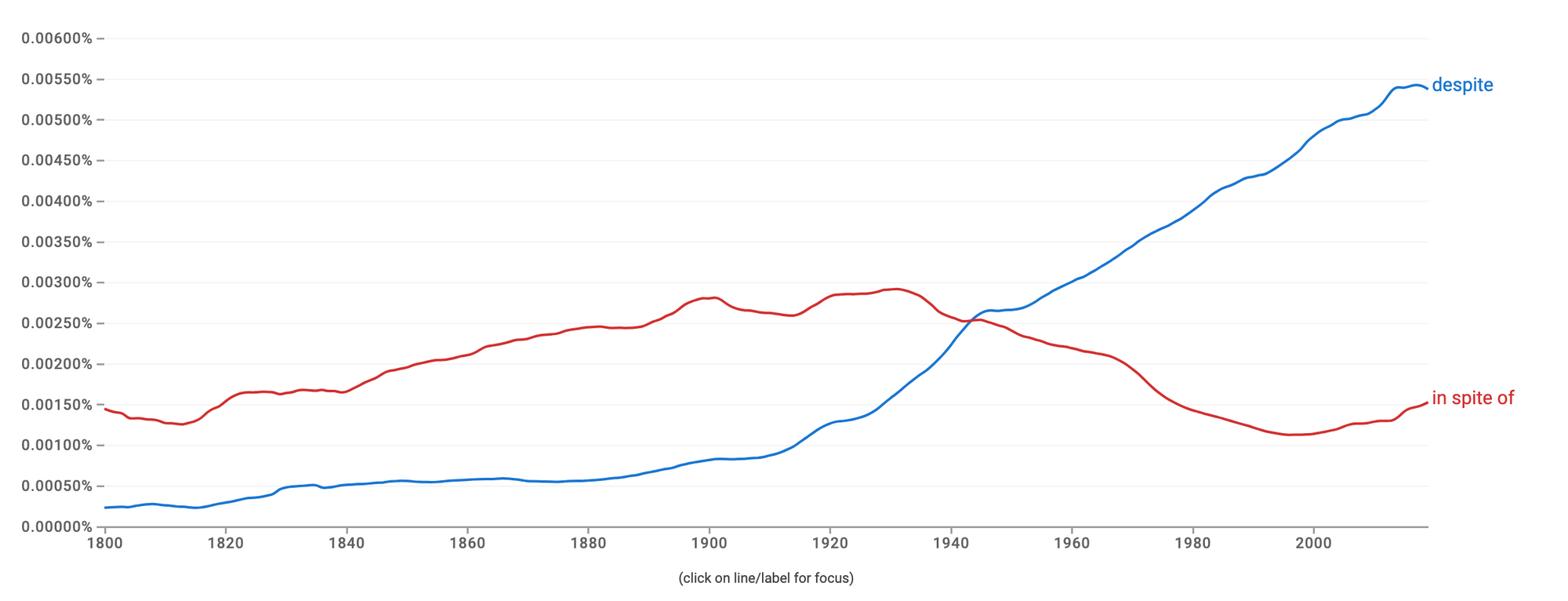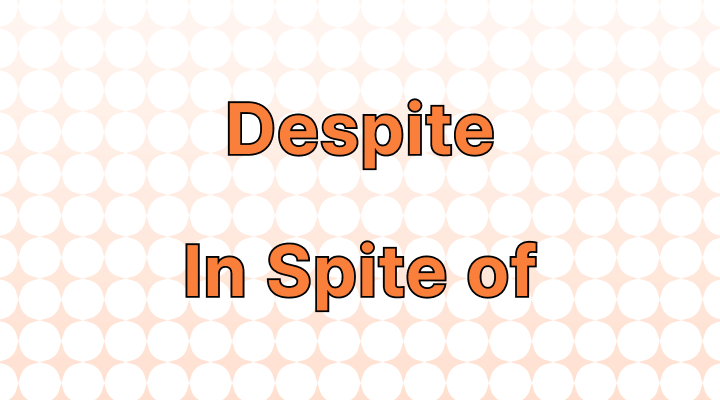"In spite of" and "despite" both mean "regardless of" or "even though," indicating that something is happening or is true despite the presence of obstacles, challenges, or contrary factors.
English abounds with phrases and idioms that may seem similar at first glance but, upon closer examination, reveal subtle distinctions that can perplex even native speakers. One such pair of phrases that often leaves people scratching their heads is "despite" and "in spite of." Both these terms convey a sense of contrast or opposition, and the only difference lies in their spelling; both words can be used interchangeably. In this blog post, we will delve into the meanings, differences, and usages of "despite" and "in spite of" to help you use them with precision.

Meaning and Usage:
- "Despite" and "in spite of" is a preposition used to indicate that something is happening or is true even though there may be obstacles, challenges, or contrary factors in play.
- It is often followed by a noun or a gerund (a verb form ending in -ing), or a relative pronoun (e.g. "what," "who").
Example sentences
- Despite the rain, we had a great picnic.
- He continued working despite feeling unwell.
- In spite of her fear of flying, she traveled to Europe.
- In spite of the challenges, the project was a success.
- In spite of the heavy rain, the outdoor concert went on as scheduled, and the audience stayed to enjoy the music.
- In spite of his busy work schedule, John always finds time to volunteer at the local animal shelter.
- In spite of the team's injuries and setbacks, they managed to win the championship, showcasing their determination and resilience.
- Despite his lack of formal education, she achieved remarkable success in the field of technology through self-learning and dedication.
- Despite the turbulent economy, the small family-owned business managed to thrive and expand its operations.
- Despite facing fierce competition, her talent and hard work allowed her to secure a spot on the national team.
Before a demonstrative pronoun "that"
"Despite/in spite of" can be used before a demonstrative pronoun "that," only if the pronoun is by itself and is used to reference previous information.
- Example: Despite/in spite of that I'm not going.
"Despite/in spite of" should never be used before a phrase starting with "that". If we do want to use it with a phrase, we have to add in the words "the fact."
- Example: Despite/in spite of the fact that it was late, Patrick drank coffee.
Common Idioms/Phrases:
- "Despite all odds": This idiom emphasizes achieving success or overcoming challenges despite facing significant difficulties. For example, "She finished the marathon despite all odds."
- "In spite of oneself/Despite oneself": This phrase refers to doing something unintentionally or against one's own wishes. For instance, "He laughed in spite of himself."
Synonyms:
While "despite" and "in spite of" are commonly used to convey contrast or opposition, you can also consider using these synonyms for variety in your writing:
- Regardless of
- Notwithstanding
- Even though
- Although
- Even if
Mastering the nuances of "despite" and "in spite of" will enhance your writing and help you convey contrast and resilience with precision. So, despite the initial confusion, you can now use these phrases with confidence and clarity in your English communication.
Want to sound like a native speaker?
Engram’s AI-powered grammar checker makes your English sound like a native speaker’s, suggesting natural English expressions on top of fixing grammar, spelling, punctuation, word order, and vocabulary.

References:
















